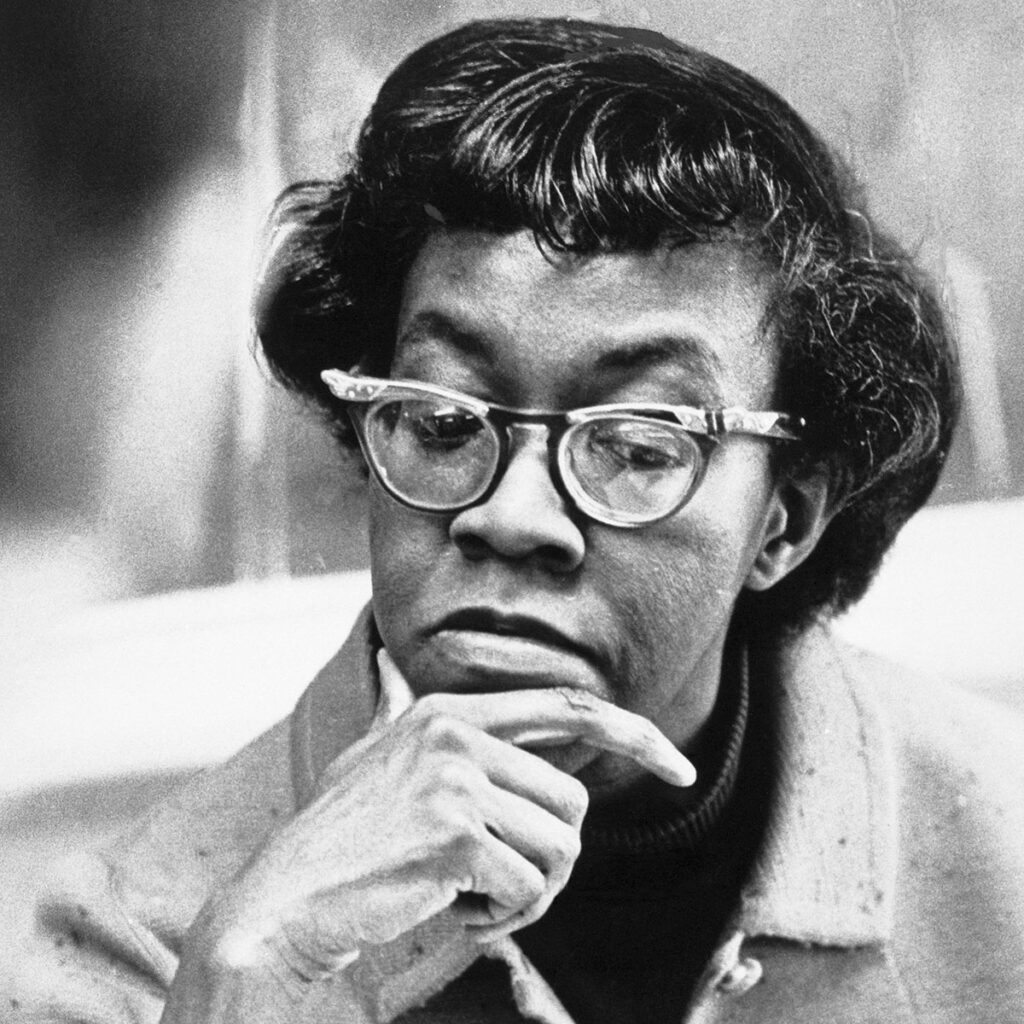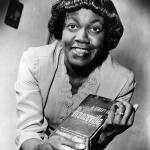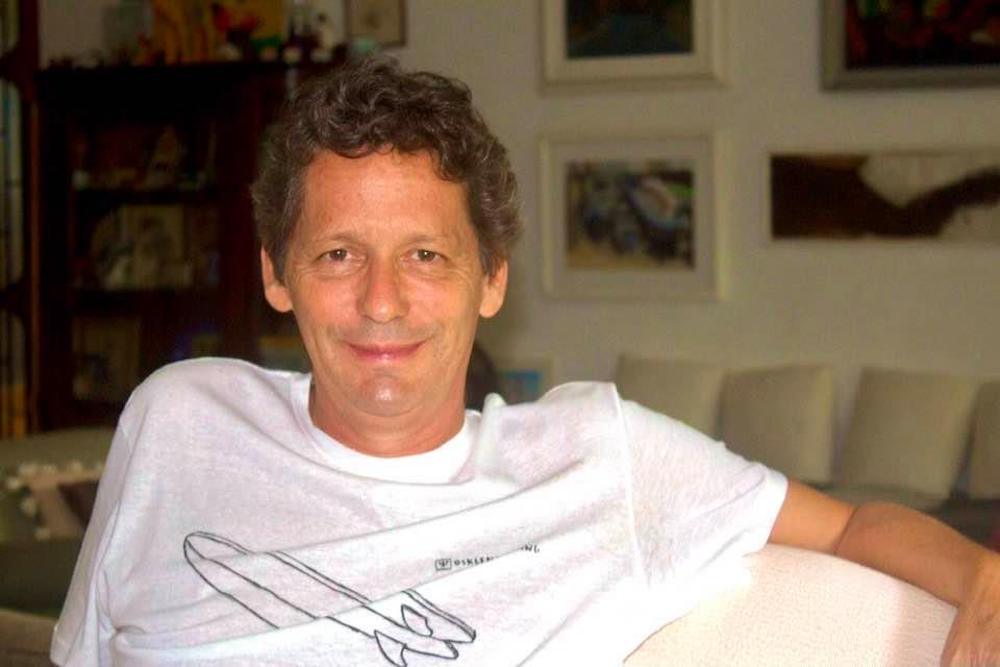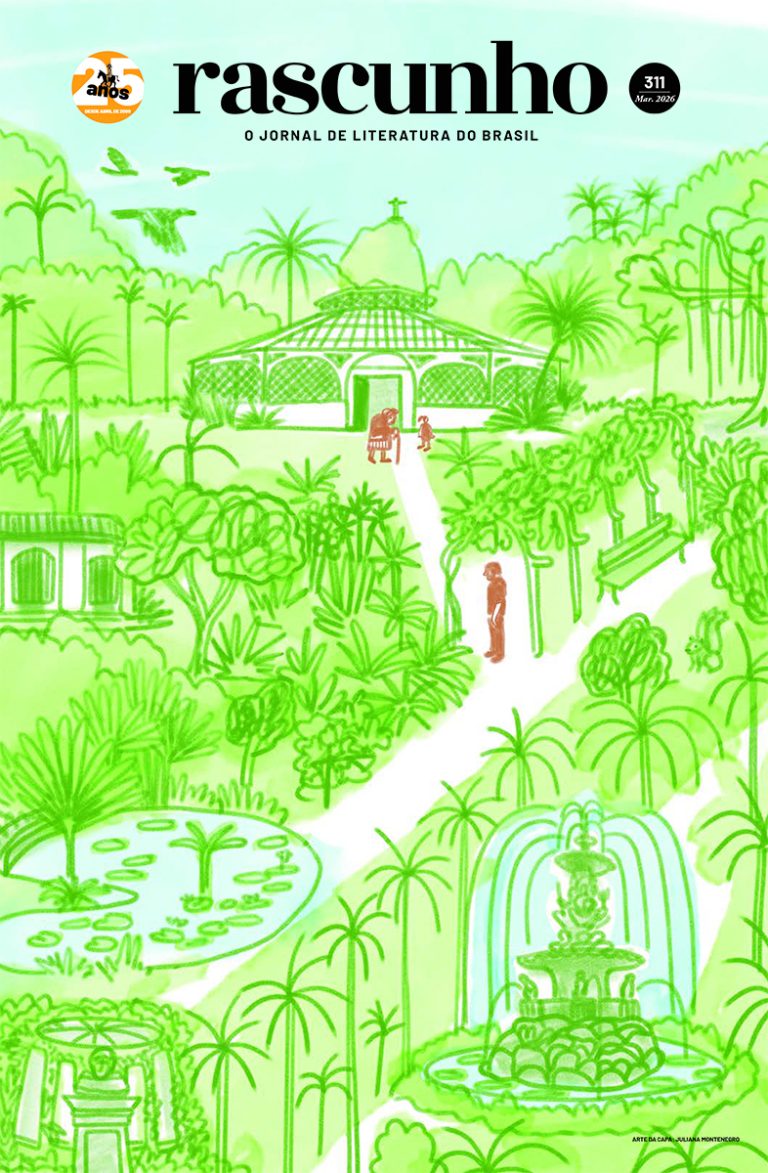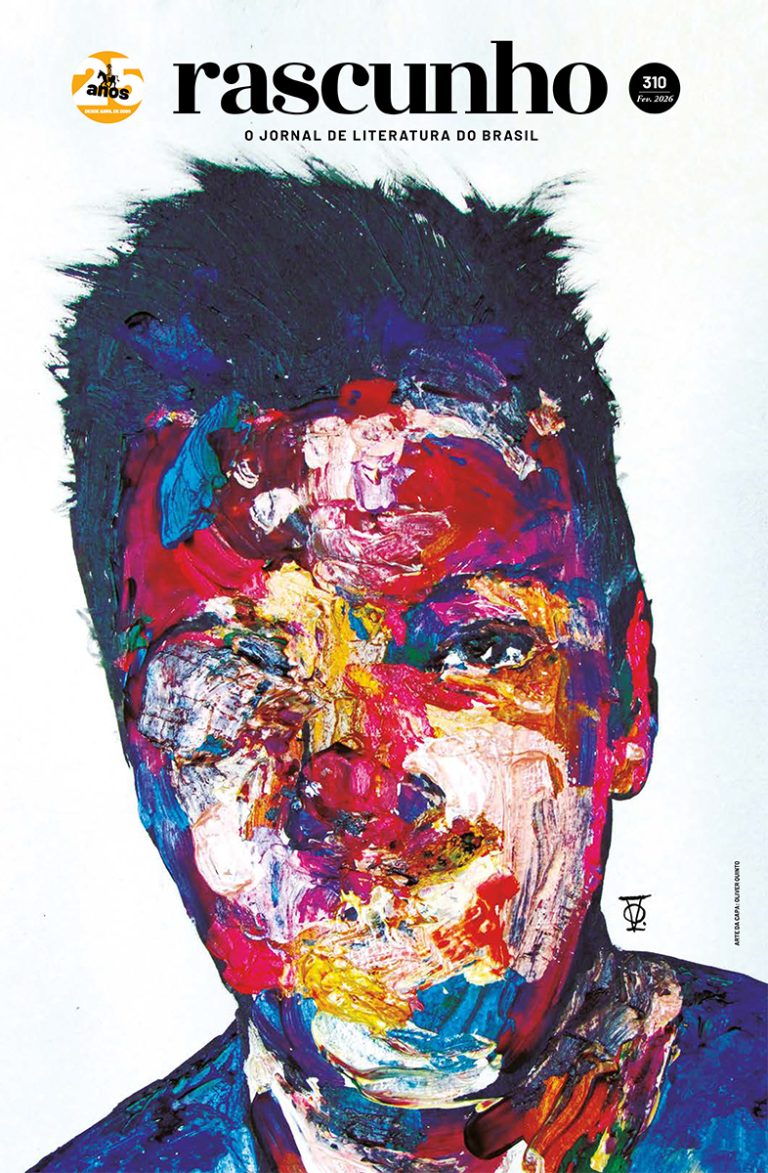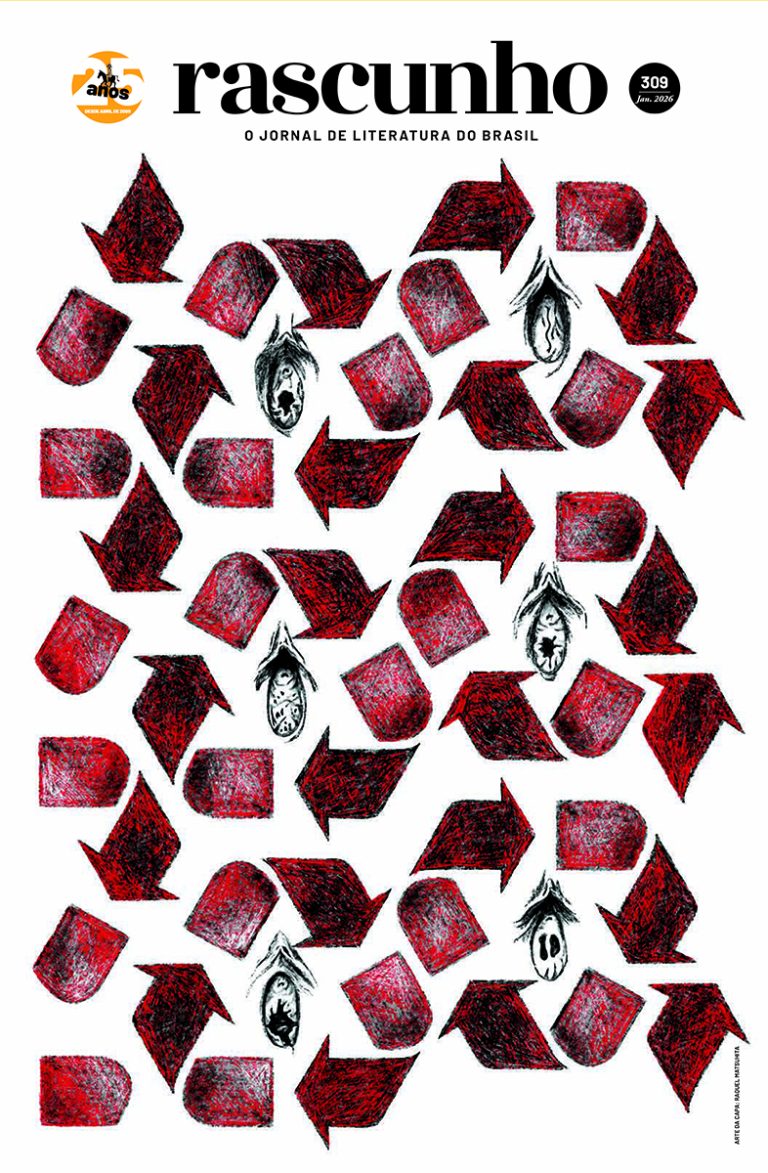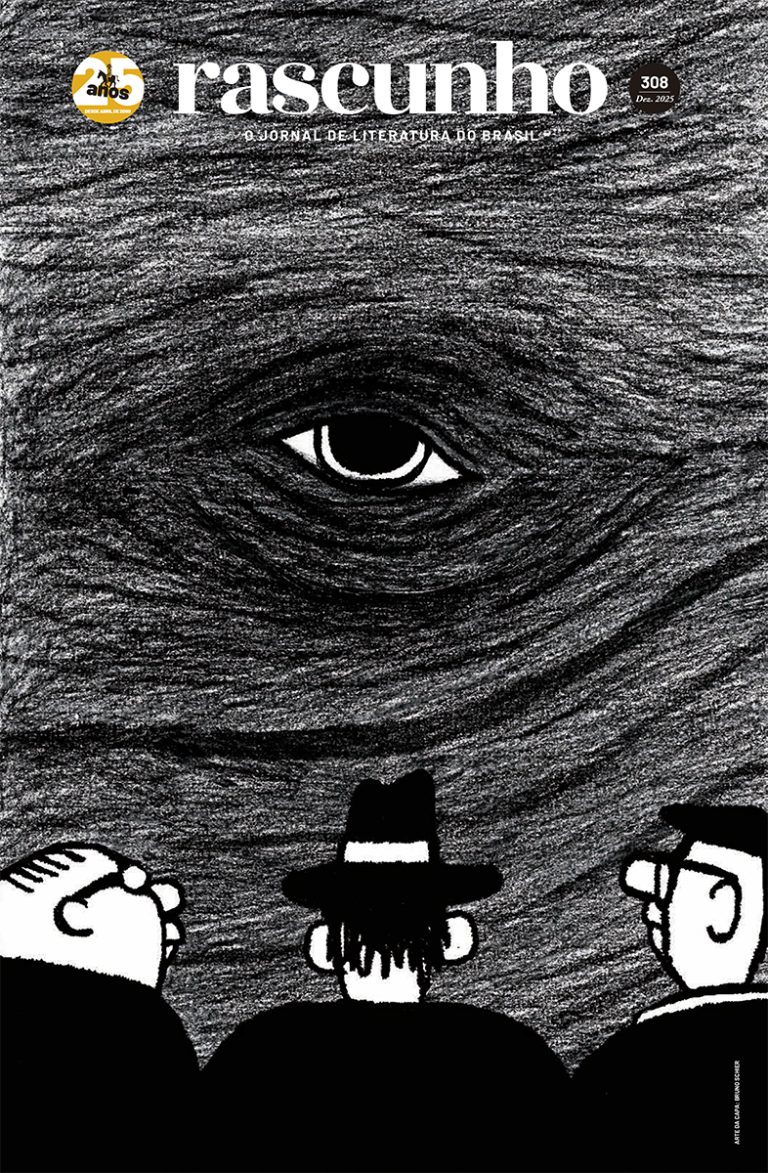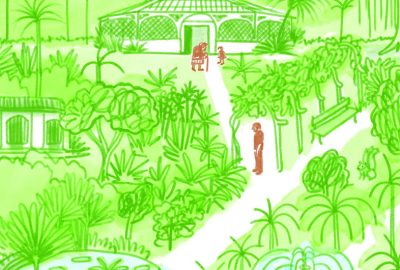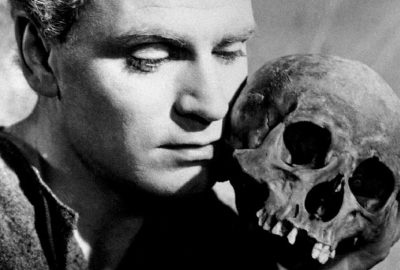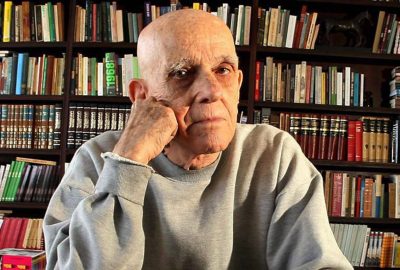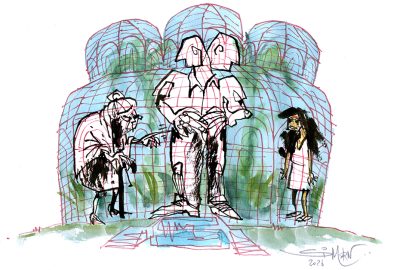The preacher: ruminates behind the sermon
I think it must be lonely to be God.
Nobody loves a master. No. Despite
The bright hosannas, bright dear-Lords, and bright
Determined reverence of Sunday eyes.
Picture Jehovah striding through the hall
Of His importance, creatures running out
From servant-corners to acclaim, to shout
Appreciation of His merit’s glare.
But who walks with Him? — dares to take His arm,
To slap Him on the shoulder, tweak His ear,
Buy Him a Coca-Cola or a beer,
Pooh-pooh His politics, call Him a fool?
Perhaps — who knows? — He tires of looking down.
Those eyes are never lifted. Never straight.
Perhaps sometimes He tires of being great
In solitude. Without a hand to hold.
O pregador: ruminações por trás do sermão
Eu acho que deve ser solitário ser Deus.
Ninguém ama um senhor. Não. Apesar
Das cintilantes hosanas, cintilantes Deus-Misericordiosos, e cintilantes
E decididas reverências nos olhares dominicais.
Imagine Jeová caminhando pelo salão
Com Sua importância, e as criaturas saindo
Dos cantos para aclamar, e manifestar
O apreço pelo resplandecer de Sua virtude.
Mas quem caminhará com Ele? — e ousará segurar Seu braço,
Dar-Lhe um tapinha no ombro, beliscar Sua orelha,
Oferecer a Ele uma Coca-Cola ou uma cerveja,
Desprezar Suas políticas, chamá-lo de tolo?
Talvez — quem sabe? — Ele se canse de olhar para baixo.
Aqueles olhos nunca se erguem. Nunca olham direto.
Quem sabe Ele às vezes dique cansado de Sua grandiosidade
Solitária. Sem ter uma mão para segurar.
…..
The vacant lot
Mrs. Coley three-flat brick
Isn’t here any more.
All done with seeing her fat little form
Burst out of the basement door;
And with seeing her African son-in-law
(Rightful heir to the throne)
With his great white strong cold squares of teeth
And his little eyes of stone;
And with seeing the squat fat daughter
Letting in the men
When majesty has gone for the day —
And letting them out again.
O terreno baldio
O sobradinho da senhora Coley
Não existe mais.
Já era, ver sua figura gorda e pequena
Surgindo pelo batente do porão;
E ver seu genro africano
(O legítimo herdeiro do trono)
Com seus montes de dentes brancos firmes e frios
E seus olhinhos pétreos;
E ver a filha gorda e atarracada
Botando homens para dentro
Quando a majestade já se fora, no dia —
E novamente botando-os para fora.
…..
The bean eaters
They eat beans mostly, this old yellow pair.
Dinner is a casual affair.
Plain chipware on a plain and creaking wood,
Tin flatware.
Two who are Mostly Good.
Two who have lived their day.
But keep on putting on their clothes
And putting things away.
And remembering…
Remembering, with twinklings and twinges,
As they lean over the beans in their rented back room that is full of beads and receipts and dolls and cloths, tobacco crumbs, vases and fringes.
Eles vivem de feijão
Eles quase só comem feijão, o velho par amarelado.
Jantar é coisa singela.
Louça velha numa velha mesa de madeira trincada,
Talheres de lata.
Dois que eram Basicamente Bons.
Dois que viveram os tempos deles.
Mas continuam a vestir suas roupas
E a jogar coisas fora.
E a se lembrar…
Lembrar, com alegrias e tristezas,
Enquanto se debruçam sobre o feijão no seu cômodo de fundos alugado repleto de colares e recibos e bonecas e roupas, migalhas de tabaco, jarras e retalhos.
…..
The last quatrain of the ballad of Emmett Till
After the Murder
After the Burial
Emmett’s mother is a pretty-faced thing;
the tint of pulled taffy.
She sits in a red room,
drinking black coffee.
She kisses her killed boy.
and she is sorry.
Chaos in windy grays
through a red prairie.
A última quadra da Balada de Emmett Till
Depois do Assassinato
Depois do Enterro
A mãe de Emmett tem um rosto tão lindo;
da cor de bala de caramelo.
Ela se senta numa sala vermelha,
e bebe café preto.
Ela beija seu menino assassinado.
e ela está triste.
O caos em ventanias cinzentas
atravessando uma campina vermelha.
…..
The egg boiler
Being you, you cut your poetry from wood.
The boiling of an egg is heavy art.
You come upon it as an artist should,
With rich-eyed passion, and with straining heart.
We fools, we cut our poems out of air,
Night color, wind soprano, and such stuff.
And sometimes weightlessness is much to bear.
You mock it, though, you name it Not Enough.
The egg, spooned gently to the avid pan,
And left the strict three minutes, or the four,
Is your Enough and art for any man.
We fools give courteous ear — then cut some more,
Shaping a gorgeous Nothingness from cloud.
You watch us, eat your egg, and laugh aloud.
O cozinheiro de ovos
Por ser você, você esculpe na madeira a sua poesia.
Preparar um ovo cozido é uma arte difícil.
Você vai ao ponto, como devem fazer os artistas,
Com paixão nos olhos e o coração apertado.
Nós, os tolos, esculpimos no ar nossos poemas,
Com as cores da noite, com o som agudo do vento, coisas assim.
E às vezes o leve é pesado demais para suportar.
Você faz troça, e diz que Não é o Bastante.
O ovo, depositado delicadamente na ávida panela,
Deixado por estritos três minutos, ou quatro
O seu o Bastante é uma arte para qualquer homem.
Nós, os tolos, ouvimos com atenção — e então esculpimos um pouco mais,
Dando forma, a partir da nuvem, a um deslumbrante Nada.
Você nos observa, come seu ovo, e gargalha.
…..
Big Bessie throws her son into the street
A day of sunny face and temper.
The winter trees
Are musical.
Bright lameness from my beautiful disease,
You have your destiny to chip and eat.
Be precise.
With something better than candles in the eyes.
(Candles are not enough.)
At the root of the will, a wild inflammable stuff.
New pioneer of days and ways, be gone.
Hunt out your own or make your own alone.
Go down the street.
Bessie Grandona joga o filho na rua
Um dia de calma, de rosto ensolarado.
As árvores de inverno
Estão musicais.
O claudicar brilhante da minha bela doença,
Você tem o seu destino para lascar e comer.
Seja exato.
Com algo melhor do que velas nos olhos.
(Velas não bastam.)
Na raiz da vontade há algo inflamável e brutal.
Pioneiro de dias e caminhos, vá embora.
Vá caçar a si mesmo ou fique só.
Siga pela rua.
…..
Nineteen cows in a slow line walking
When I was five years old
I was on a train.
From a train window I saw
nineteen cows in a slow line walking.
Each cow was behind a friend.
Except for the first cow,
who was God.
I smiled until
one cow near the end
jumped in front of a friend.
That reminded me of my mother and of my father.
It spelled what was in their Together.
I was sorry for the spelling lesson.
I turned my face from the glass.
Dezenove vacas enfileiradas caminhando devagar
Quando eu tinha cinco anos
estava em um trem.
De uma janela do trem eu vi
dezenove vacas enfileiradas caminhando devagar.
Cada vaca ia atrás de uma amiga.
Exceto pela primeira vaca,
que era Deus.
Eu sorri até que
uma vaca lá do fim
pulou na frente da amiga.
Aquilo me fez lembrar de minha mãe e meu pai.
Da gramática que havia no Juntos deles.
Eu lamentei aquela lição de gramática.
E afastei meu rosto do vidro.

